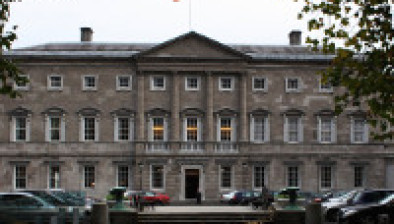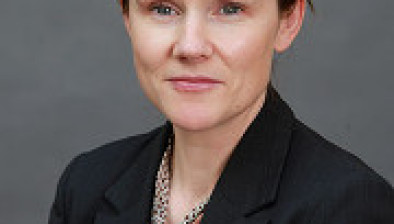NI Hight Court: Mentally unwell sylum seeker granted fresh decision after ‘unfair’ and ‘irrelevant’ ruling

An asylum seeker who feared being kidnapped and chained has been granted a fresh decision by Northern Ireland’s High Court after an “unfair” and “irrelevant” ruling by the Secretary of State for the Home Department.

About this case:
- Citation:[2021] NIQB 98
- Judgment:
- Court:High Court
- Judge:Mrs Justice Karen Quinlivan
The applicant, a citizen of Somalia, successfully challenged the Home Office decision to refuse asylum under paragraph 353 of the Immigration Rules.
The judge found that the applicant had been unfairly punished for not submitting new evidence, despite the fact that she was never invited to do so, and the evidence had only previously been considered in a since quashed decision.
The Secretary of State had further erred in applying the wrong standard of proof.
Background
The applicant claimed asylum in the United Kingdom in November 2012. Her first husband was killed in 2000; she married again in 2003 and stated that her second husband, now deceased, was kidnapped by the Islamist militant group Al-Shabaab.
She claimed that she herself was detained by Al-Shabaab in September 2012, having been accused of spying for the government. The applicant’s initial claim thus centred around the risks posed by Al-Shabaab should she be returned to Somalia.
This claim was rejected by the Home Office on 21 November 2014 on the basis that her accounts were inconsistent and lacking in credibility. On 19 April 2017, the applicant made further submissions to the Home Office, alongside medical evidence.
New medical evidence
The applicant submitted medical evidence including a GP letter and a letter from Belfast Home Treatment, which recorded that she was suffering from depression and some “suspected cognitive defect”.
She claimed that the “consistency and credibility issues which clearly had a decisive effect upon the outcome of the applicant’s asylum claim/appeal have likely arisen as a result of the applicant’s medical health condition”.
This evidence was relevant because the applicant’s accounts as they related to her description of the risk posed by Al-Shabaab were variously described as “fabricated”, “inconsistent and improbable”.
The medical evidence was also relied on to establish that those who suffer from mental health issues in Somalia are placed in danger of being chained up.
The applicant’s legal team submitted a report from the World Health Organisation, in summary form, and Human Rights Watch, which documented the cultural stigma attached to mental illnesses in Somalia and noted that the “mentally ill are generally chained and/or confined” and further documented “extreme isolation, discrimination and stigmatism, expressed through violent actions”. The report also detailed the lack of mental health facilities in Somalia.
The applicant, as a person suffering from mental ill-health, was thus a person at risk of being subject to Article 3 ill-treatment. The cultural animosity that exists towards those with mental illness would also render her susceptible to suicide, it was argued.
The Secretary of State for the Home Department rejected the applicant’s subsequent submissions on 17 May 2018. The applicant sought to judicially review the Home Office decision, which was eventually granted by Mrs Justice Keegan.
Following this judicial review, on 17 February 2020, the Secretary of State agreed to quash her previous decision and was ordered to make a fresh decision within three months. A fresh decision was not made until 30 September 2020, seven months later, and was not communicated to the applicant’s solicitor until 13 October 2020.
Analysis of the Impugned Decision
In this case, the judge’s primary concern was the Secretary of State’s approach to the decision of 17 May 2018, which had been quashed. She believed that “the Secretary of State attached weight to the decision of 17 May 2018 treating it as if it was a decision to which she was entitled to have regard”.
The Secretary of State thus appeared to the court to have proceeded on the flawed assumption that the May 2018 decision was a valid decision. It was not; it had been quashed by agreement of the parties, and the Secretary of State was obliged to make an entirely fresh decision based upon the same materials.
As a result of the quashed decision, there had been no previous valid consideration of the issue of mental health care in Somalia. Much of the new decision had discussed the risk posed by Al-Shabaab, which overlooked the fresh complaint regarding fears of mental health treatment.
The ‘credibility’ issues were therefore also no longer a central issue, as the mental health diagnosis had been confirmed by a GP and a psychiatrist, and the mental health treatment in Somalia had been observed by the WHO and Human Rights Watch.
As well as relying on the previous quashed decision, the court found that the Secretary of State had drawn an adverse inference from the failure of the applicant to supply fresh medical evidence for this new decision
However, the court noted that it was open to the Secretary of State to offer the applicant an opportunity to submit any additional materials she might wish to have considered. Had that invitation been issued, depending upon the response, it would have been open to the Secretary of State to draw certain conclusions from the absence of new materials.
However, that was not what happened in this case. The Secretary of State was directed to make a fresh decision within three months; it took her seven. The applicant was not directed to update the information provided and was entitled to proceed on the basis that the determination would be made based on materials already provided:
“To draw an adverse inference from the applicant’s failure to submit new material was both unfair and amounted to taking into account an irrelevant consideration”
The Secretary of State also believed that the reports regarding chaining up of mentally ill individuals in Somalia were out of date, despite the fact that the WHO is still operating a “Chain-Free Initiative” in the region.
Conclusion
The court quashed the Secretary of State’s decision, and ordered her to make a fresh decision. The respondent was ordered to pay the applicant’s costs.
As a final point, the court found that the Secretary of State had also applied the wrong standard of proof. The question the Secretary of State ought to have asked herself was whether there was a reasonable degree of likelihood that the applicant would be subject to persecution. The wording of the decision, it was held, did not reflect this standard.










